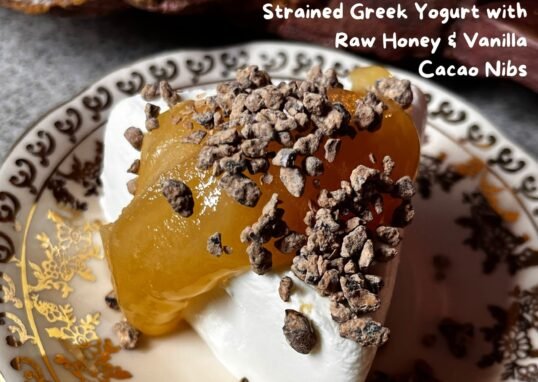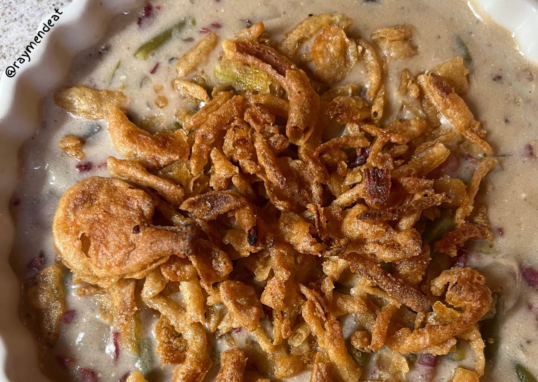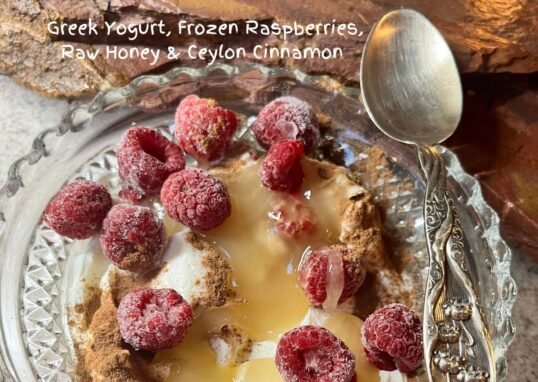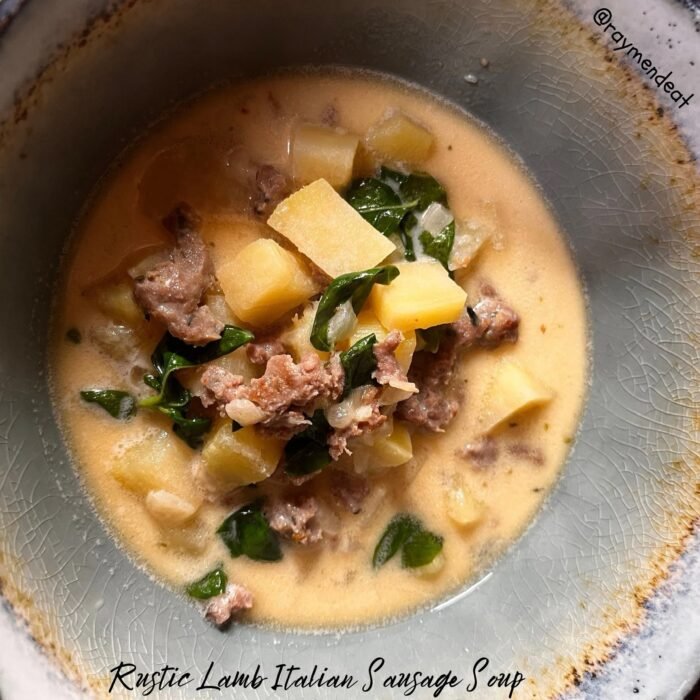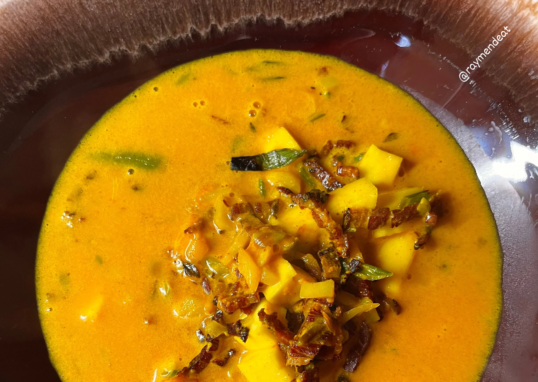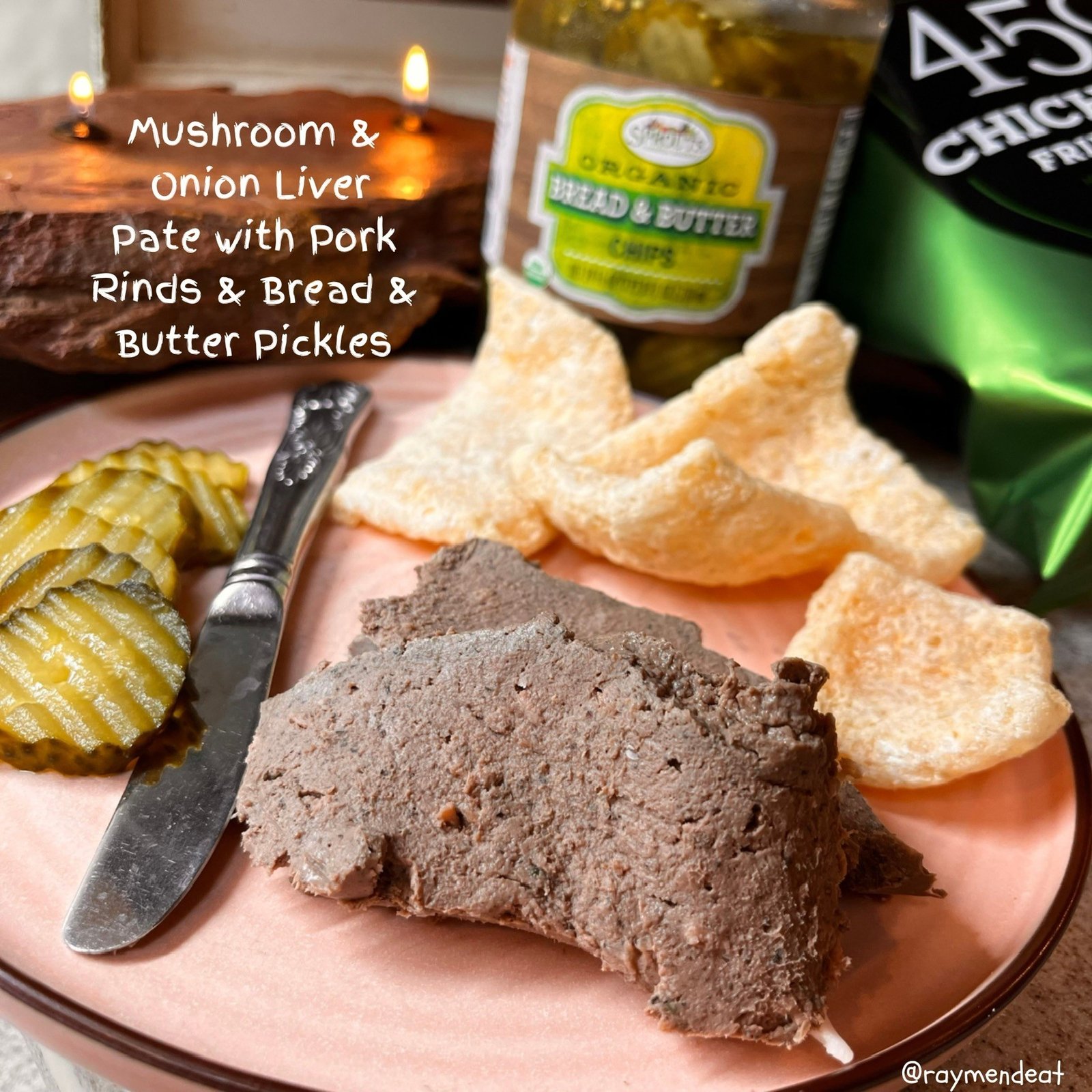
Liver is not a flavor I care for. With that being said I have had a couple of really good liver dishes in high end restaurants, and I make some good ones myself. Pate is my favorite way to have liver, especially duck liver. The thing about liver is it is suppose to be eaten very fresh, so buying it in the refrigerator case is out of the question for me. I buy mine frozen. The trick I have found to making liver taste good is to soak it in milk first. The milk softens the flavor and draws out some of the blood.
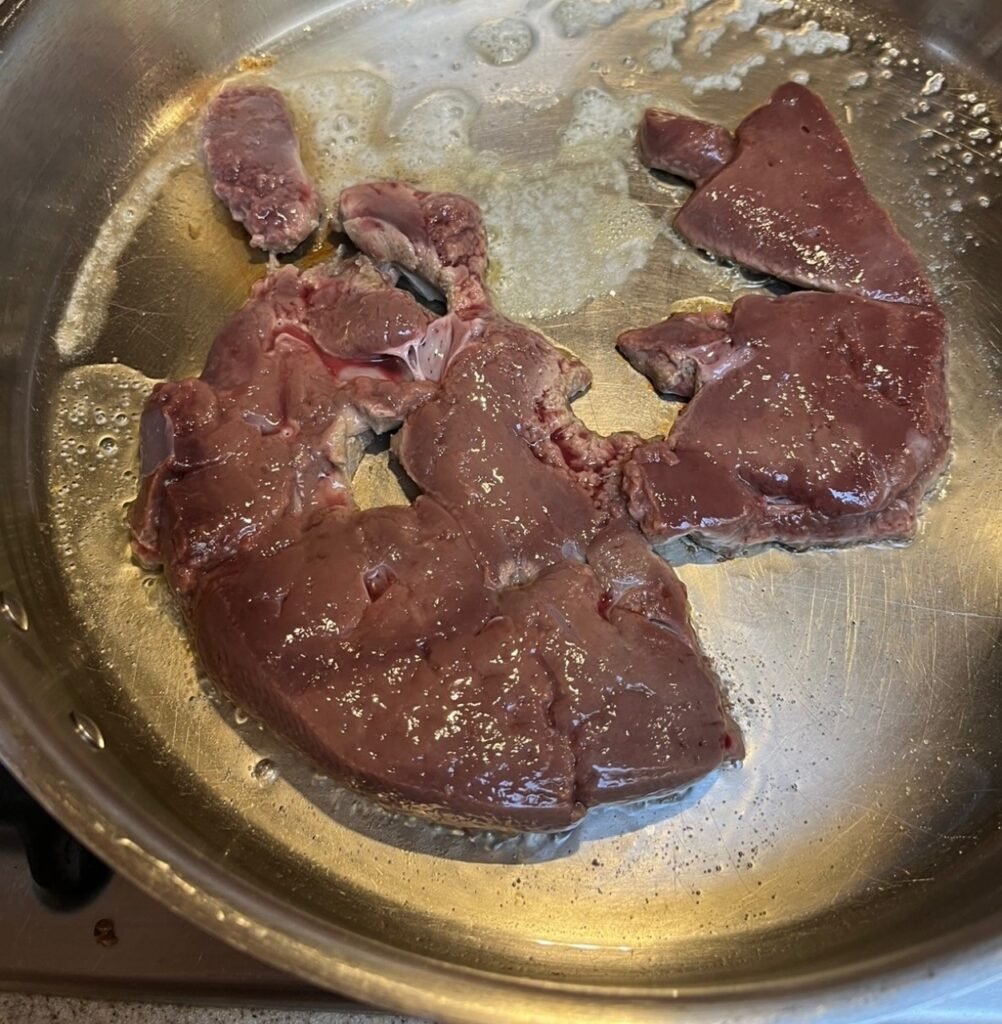
Start the pate by soaking a pound of liver in milk, just enough to cover it. Soak it for an hour or more. I have even soaked it overnight. Chop up half of a medium onion as well as two big portabella mushrooms. Be sure to scrape the underside of the mushrooms clean. I use a serrated grapefruit spoon for this. Melt one tablespoons each butter and refined coconut oil in a frying pan and sauté the mushrooms and onions with a little salt until the onions are golden. Transfer the onions and mushrooms into a Bullet-type blender. Next pat the liver dry with some paper towels. Heat one tablespoon refined coconut oil in a frying pan on medium high heat. Add in the liver and fry quickly on both sides, until just cooked. The middle should be firm, but a light pink. Transfer it to a cutting board and let it cool.
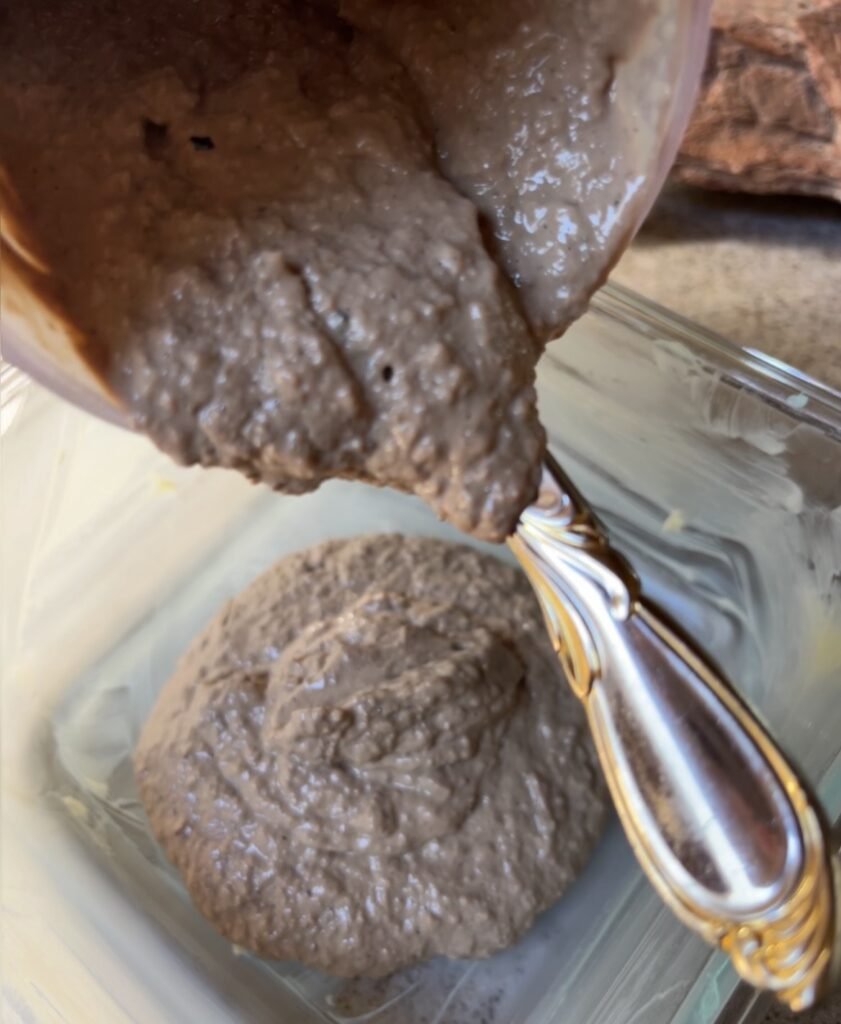
Chop the cooled liver and add it to the blender with the mushrooms and onions. Add in 1 teaspoon salt, a half teaspoon herbs de Provence, 3 tablespoons apple juice, 3 tablespoons cream and blend it until smooth. Butter a glass dish and pour the pate into it. Chill till firm. I have added bacon to this recipe which was very good too, refried in coconut oil first. I usually eat this on buttered sourdough toast, but went for this gelatin balanced combo this time. I usually keep the pate frozen in easy to thaw out portions.
My email to Dr. Raymond Peat on 3/5/22
Me: “Good evening Dr. Peat!
Besides the obvious word fresh, can you
please clarify how cooking fresh liver quickly
is different from drying the liver out, which you
have said becomes toxic? Is it from the air or
heat?”
Ray Peat: “Quickly cooked (at high temperature) salmon has
only a small fraction of the free radicals in
poached salmon. The combination of time and
oxygen is more important than temperature.
Dehydration creates much more oxidation than
quick cooking.”

